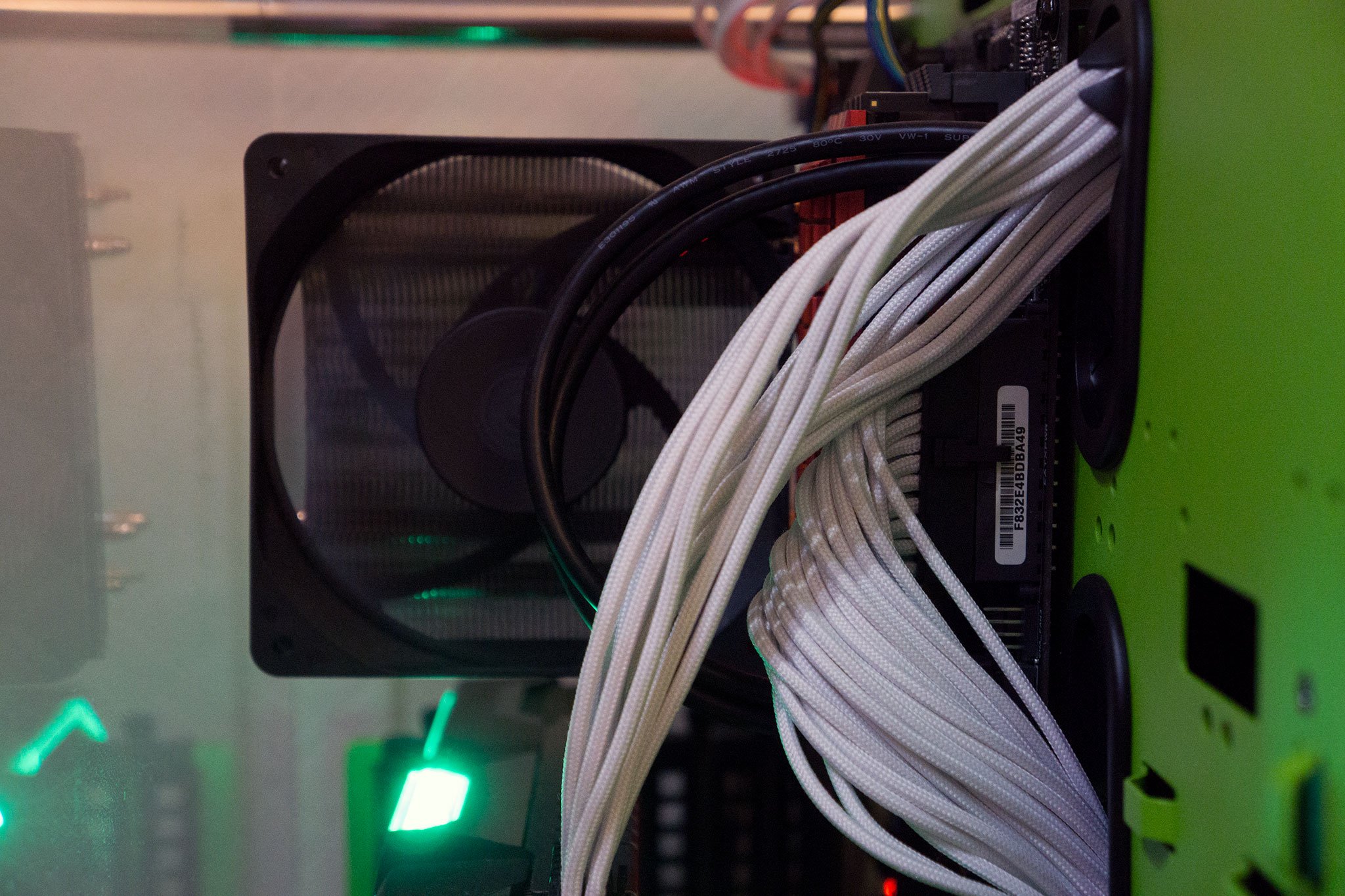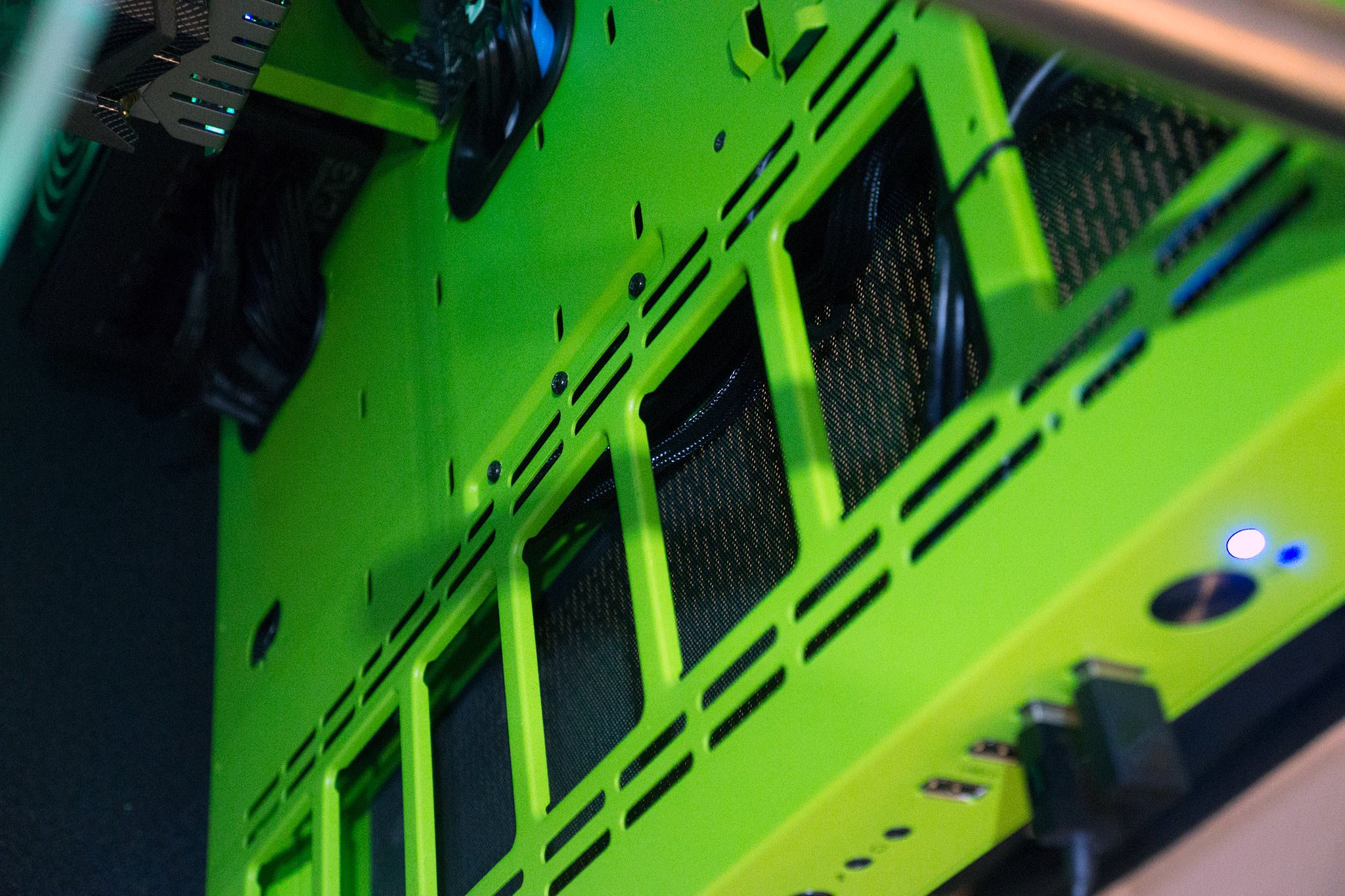How cool does Thermaltake's Core P5 case run without water cooling?
Before installing any water-cooling equipment inside the Thermaltake Core P5 PC case, we wanted to see just what temperature readings we could get when stress-testing the machine. The results were surprising.

All the latest news, reviews, and guides for Windows and Xbox diehards.
You are now subscribed
Your newsletter sign-up was successful
Thermaltake's Core series of cases are designed for modding and water cooling. It's also recommended to use the latter over conventional fan setups because of how open the cases are. To be an owner of a Core P3 or P5 case is to constantly battle dust and other particles. I've yet to install water cooling in the P5 unit I have, and instead, I'm simply relying on ZOTAC's GPU shroud and a Cooler Master Hyper 212 Evo CPU cooler.
So just what temperature readings do I get when the system is pushed to its limit? Tl;dr: I was pleasantly surprised by just how effective both solutions are.
Before installing a custom water cooling loop, I decided to take a few readings to see just how much of a difference it's going to make. I thought of the poor airflow the PC currently has, coupled with the severe lack of ... well, anything really. Here's what I currently have installed in the system:
- ASUS PRO GAMING Z170 motherboard.
- Intel Core i5-6600K (overclocked to 4GHz).
- 16GB DDR4 RAM.
- ZOTAC GTX 1070 AMP! Extreme Edition.
- 850W EVGA G2 PSU.

Pushing the system to its limit for 45 minutes resulted in the following readings:
| Component | Max temperature | Max fan speed |
|---|---|---|
| GPU | 142F (61C) | 1,060 RPM |
| CPU | 126F (52C) | 675 RPM |
Ambient temperature was 68F (20C). Color me surprised. I knew the Hyper 212 Evo CPU cooler was good, but not that good. A maximum reading of 126F (52C) overclocked to 4GHz with very little airflow and only spinning up to 675RPM? That's an impressive result. The same goes for ZOTAC and the company's AMP! Extreme Edition GTX 1070, which managed to keep a cool face under load without sounding like a jumbo jet taking off.
After we have everything set up with the liquid-based cooling solution, I'll run the tests again and compare figures, taking into account just how much (or how little) effort the radiator fans put in to keep everything within safe parameters. However, if you're looking at a Thermaltake Core case and don't want to deal with water cooling in any form, it's certainly possible to run a powerful yet adequately cooled system.
All the latest news, reviews, and guides for Windows and Xbox diehards.

Rich Edmonds was formerly a Senior Editor of PC hardware at Windows Central, covering everything related to PC components and NAS. He's been involved in technology for more than a decade and knows a thing or two about the magic inside a PC chassis. You can follow him on Twitter at @RichEdmonds.
